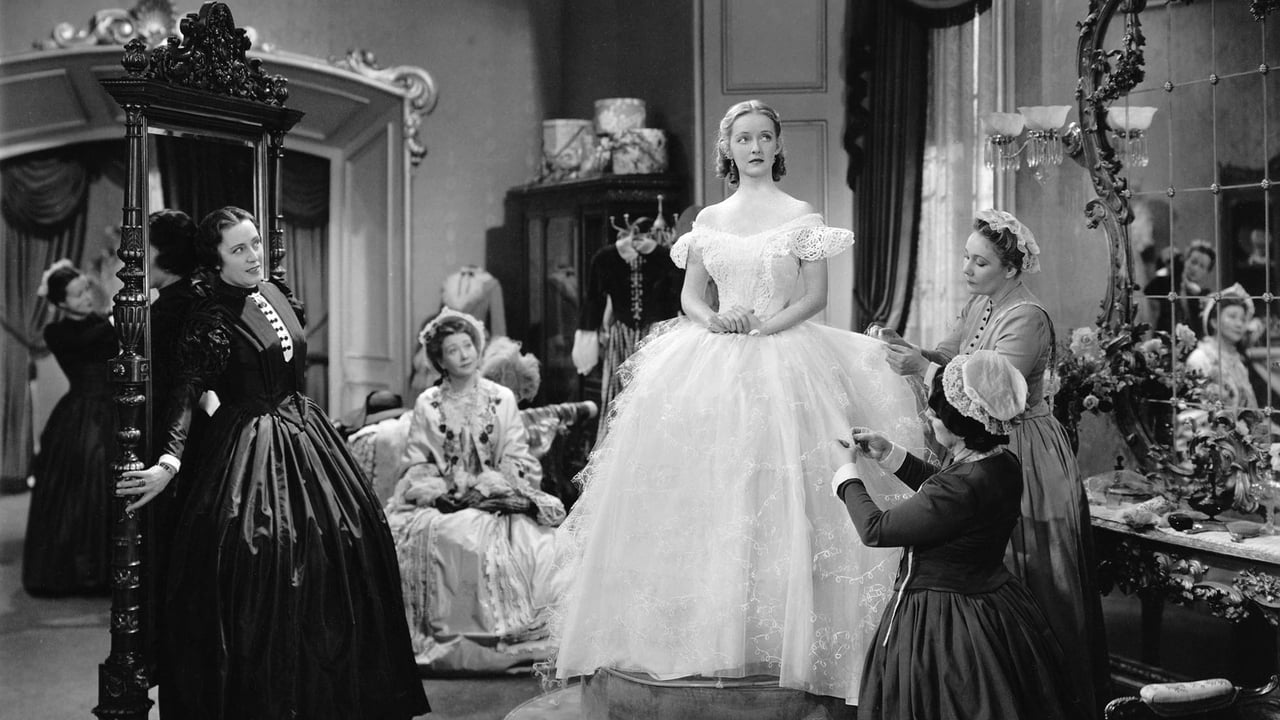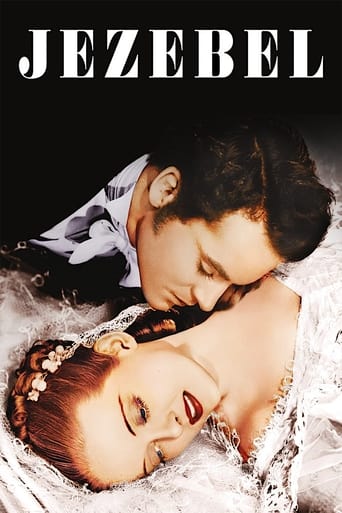



I'll tell you why so serious
Great visuals, story delivers no surprises
Don't listen to the negative reviews
One of the most extraordinary films you will see this year. Take that as you want.
View MoreJezebel depicts how the South's idea of conservatism was going to crash and burn on its head even before the Civil War was to be waged due to the immature/petty environment not considering what the consequences were coming as a result of their stubborn lack of actions- indeed the South's tragedy is that it relied too much upon outdated conventions whilst ignoring the human/environmental costs being allowed to happen all around their lack of moral judgment. New Orleans is punished for its willing failure to uphold their spiritual obedience to God's benevolent commands, such as lovingly respecting their fellow human being's sense of personal liberties, preserving the natural landscape, investing in creatively advanced techniques in a sufficient manner to further help their city out of harm's way and protecting the community's legal/moral civil rights, with a fatal plague, almost as if the plague was an allegory for all of the death and destruction that all of humanity will endure if they continue to permit selfishness to rule their lives.Both Julie Marsden (Bette Davis) and her lover, Preston Dillard (Henry Fonda) make costly mistakes when they act out of pure jealous pettiness when they don't get their ways as per se demanded- hers is to rebel not out of earnest pleas for social justice but out of an inhuman spite; his is to conform with disciplinarian social dictations instead with his own compassionate conscience. These mistakes ruin their lives as neither one wants to apologize for their soul-deadening decisions- however only Julie spiritually redeems herself when she realizes that life-altering consequences do happen as a result of her carelessly thought out decisions and metaphorically baptizes herself as she saves her former finance's new wife from innocently suffering under a swift punishment. Thus, she regains her dignity as she and Preston join countless other souls upon the danse macabre.The slaves' depiction is what keeps Jezebel from reaching a true masterpiece status as they're unwisely portrayed as "a happy-go-lucky, singing lot" (again). However, to be fair to the movie, they're at least given an attempted aurora of genuine personality and their singing scene marks Julie's genuine rebirth as she subconsciously realizes her mistakes and gains a desire to become a better human being, signaled by her joining into their custom dance. Yet, this scene of spiritual resurrection is reserved only for Bette Davis' character, not for her fellow black dancers- even then, these gospel-filled instruments aren't allowed to blossom as fellow characters due to both their race (black) and their inhumane/unwanted captivity (their illegal enslavement and treatment in an already hypocritical society).
View MoreBette Davis made the most of this part that was given to her as a consolation after Vivien Leigh beat her out for the role of Scarlett O'Hara in Gone With the Wind. She's excellent in the role as the lithe and spirited southern belle who shocks her fiancé and the rest of society by (gasp) wearing a red dress when white is the rule for unmarried women. Her fiancé is played by Henry Fonda, who's sporting a lot more hair at age 33 than I ever remember him having, and who mercilessly keeps her at the ball even though it's now clear to her that she's made a mistake, and everyone is treating her as a pariah (including clearing off the dance floor as they twirl around). There are so many great scenes with Davis. She gives Fonda a great slap when he leaves her that night for good. She humiliates herself when he comes back a year later and she's on her knees in the dress she should have worn that night, only to be introduced to his wife.However if Bette Davis had not been cast, this would be a pretty bad movie. Henry Fonda is wooden and awful. Black folks are content and happy to be slaves. Davis's character starts off by proclaiming this is 1852, she can dress as she wants, making us hopeful that she's independent and a pioneer, but she's soon cowed and contrite. She does deviously try to get Fonda back, and in an interesting, subtle parallel, he too becomes a pariah when he contacts yellow fever during an epidemic, but the ending is forced, melodramatic, and abrupt.Davis was 30 years old when the film was made but had already been in 36 movies, won one Oscar and been nominated for one other, and yet she said this was the role that truly established her. You can see why, and if you can watch it just for her, you'll probably enjoy it.
View MoreA haughty headstrong Southern Belle (Bette Davis) in Antebellum Louisiana loses her fiancé due to her stubborn vanity and pride and vows to get him back.The Turner Classic Movies Database states that the film was offered as compensation for Bette Davis after she failed to win the part of Scarlett O'Hara in Gone with the Wind. Despite a radio poll showing Bette Davis the audience favorite for the role, Selznick never seriously considered her for it. Though her portrait of the malicious Mildred in Of Human Bondage (1934) had made her a star, this film garnered the Best Actress Oscar many felt she deserved then, and established her as a leading lady from that point on.Indeed, this was a great role for Davis, and she probably would have been impressive in "Gone With the Wind". Her career as a whole is quite odd. She had a promising beginning, and then grew sort of funny-looking as she aged. And yet, she kept getting big roles (even if the movies got stranger and more horror-oriented). Davis is interesting in that way... Hollywood allegedly rejects women as they age, but Davis was embraced.
View More. . . misbegotten soap opera, GONE WITH THE WIND, since JEZEBEL courageously blows the whistle on the Evils of Black Slavery while WIND set back American Race Relations at least a century (prompting umpteen lynchings, to boot). Even this summer, 76 years after that ill WIND first blew by us, GWTW fans are waltzing into Black Churches attempting to prove that Black Lives Don't Matter; anyone who can read the opening scroll of GWTW without standing up to scream at those Treason-praising lies needs to "self-deport" from America forthwith! Warner Bros. filmed JEZEBEL in Black & White, because Slavery and Race Relations are Black & White issues, hardly fit to be gussied up and glossed over in Technicolor. JEZEBEL features the top movie star of the late 1930s--Bette Davis--because of the serious nature of these issues (JEZEBEL producer Warner Bros. felt no need to cast a mentally unhealthy chick in the lead to garner unmerited publicity). Viewers cannot help seeing JEZEBEL's two mansions without thinking of the thousands of Racist Slave Floggings, brutal "wings-clipping" amputations, and "routine" bleeding-finger cotton-picking marathon work days slaving in the fields that made these germ-infested palaces possible. Henry Fonda's "Pres" character makes sure that his fellow Southerners know not only that theirs is a Lost Cause, but he explains WHY it is lost (unlike Clark Gable's immoral airhead GWTW playboy, Rhett Butler).
View More